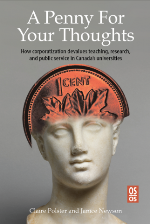Published on Thu, 2015-05-28 09:27
As UN negotiations on the post 2015 framework begin to tackle the complex issues of accountability, review and follow up, the diversity of views, perspectives and the lack of concrete proposals make the likelihood of finding an agreement remote indeed. |
Published on Thu, 2015-05-28 09:21
Ever since the Group of 20 decided to tackle infrastructure as part of its development agenda, in 2010, the push for increasing investment in infrastructure never ceased. Today, infrastructure finance is not only top of the agenda at the Group of 20 – where its sheer continuity would be already remarkable –, but also at public lending institutions, led by the World Bank, and at the United Nations where it is expected to feature prominently in a new financing for development deal for the post-2015 era. Within the new infrastructure finance agenda emerging in such forums, the USD 85 that institutional investors, and in particular pension funds, are estimated to hold in savings, are seen as playing a starring role. |
Published on Fri, 2015-05-22 10:53
Simmering conflicts in higher education have reached the boiling point across Canada and around the globe. Teach-ins, occupations, strikes, and mass protests are being mobilized against exorbitant tuition fees, declining educational quality, mismanagement, the commodification of research, and the suppression of free speech and critical inquiry. A Penny For Your Thoughts, a new book from CCPA's Education Project, shows how Canadian higher education has come to this point. Through 17 real time studies, it tracks how the deteriorating condition of postsecondary education is rooted in corporatization, the process through which universities and colleges increasingly work for, with, and as businesses. The book’s central message is that the current state of Canadian universities is neither natural nor inevitable: it is the outcome of choices, policies, and actions that can be unmade and undone. Authors Claire Polster and Janice Newson do not prescribe easy recipes for achieving this. Instead, they help citizens to arrive at their own understandings of corporatization and to identify where and how they can intervene strategically in their local universities and communities to reverse its effects. By so doing, Canadians can reclaim their universities as public-serving institutions that realize their highest aspirations and meet their own, their fellow citizens’, and the global community’s most pressing needs. |
Published on Fri, 2015-05-22 10:21
The FfD agenda is an important reference point for discussions on development finance, and serves as a unique space where governments, in particular from the South, are able to debate important issues like trade and foreign direct investment as well as systemic issues like the international financial architecture and financial regulation. These are the global economic issues that were absent in the origin and overall framework of the Millennium Development Goals and remain piecemeal in the proposed Sustainable Development Goals (SDGs) framework. |
Published on Thu, 2015-05-21 13:46
It is often argued that social protection is not affordable or that government expenditure cuts are inevitable during adjustment periods. But there are alternatives, even in the poorest countries. A recent ILO paper “Fiscal Space for Social Protection: Options to Expand Social Investments in 187 Countries” offers an array of options that can be explored to expand fiscal space and generate resources for social investments. |
SUSCRIBE TO OUR NEWSLETTER






